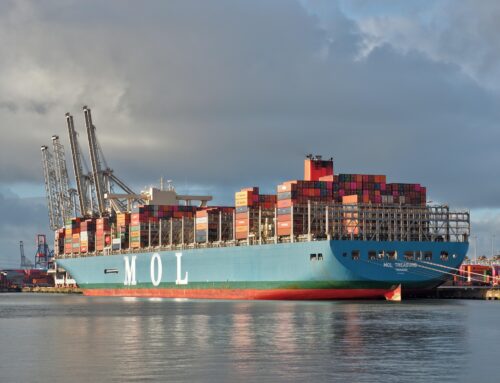The images coming out of Ukraine are both troubling and tragic. The U.S. and many other countries continue to increase pressure on Russia and Belarus with ever-widening sanctions. And it’s not just sanctions levied by governments, we are now beginning to hear that companies are doing what they can to isolate Russia to help bring about an end to the conflict. It remains to be seen whether these sanctions will have the desired outcome.
When we hear that companies are suspending sales of their products in Russia, it’s not surprising for investors to wonder whether lower stock prices will follow. Let’s use Apple as an example to help put such a move into context.
Earlier this week, Apple announced a suspension of the sale of all its products – everything from iPhones, Mac computers, apps and services – in Russia. To what extent will this move impact Apple’s top line and bottom lines. As for its top line sales, Russia represents roughly 1% of Apple’s total annual revenue. See chart below.

Such a reduction in sales could lead to an equivalent reduction in Apple’s bottom line profit – all else being equal. And while no one wants to see situations that result in shrinking profits, a 1% decline in profits should not translate into a significant change in Apple’s stock price. Since the beginning of the year, Apple is down a bit more than 7% as part of the overall correction that began in early January. However, Apple’s share price, while volatile, is actually up a bit since the Russian invasion began.
Clearly, there are some companies where changes to their business with Russia could have a greater impact. Most of these kinds of companies are in the energy sector. Shell announced that it is pulling out of the Nord Stream pipeline deal with the Russian state-owned energy company Gazprom. And Exxon announced that it will halt operations in a joint venture with Russia and take steps to exit the project. Exxon also announced it will not invest in new developments in Russia.
Over the last couple of years, we have learned the importance of NOT resetting expectations for future stock prices simply based on troubling news about the world around us. While some companies can be negatively impacted by something as bad as a global pandemic, or now the Russian invasion of another country, such events do not impact all companies the same way. And most of the large, publicly-traded companies in which we invest are MUCH better prepared to manage these kinds of events than they were during the financial crisis in 2008/2009 or the tech wreck in 2001/2002.
If you have questions or would like to chat, please let me know.






